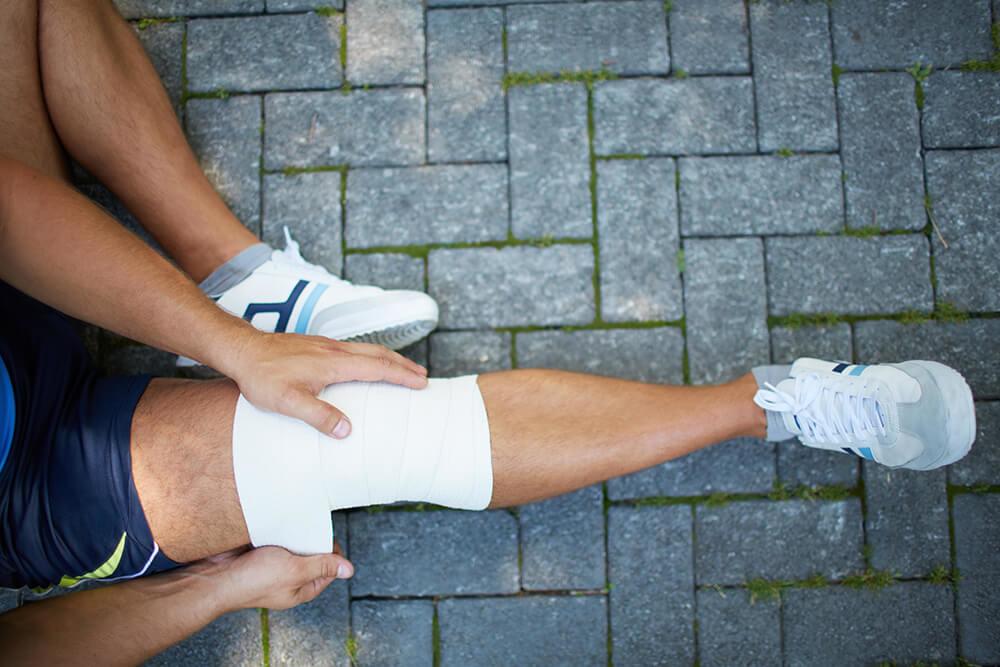What Runners Need to Know about Cortisone Shots

Cortisone shots have been around for quite some time as a remedy for joint aches and pains endured by a variety of individuals, including those suffering from arthritis as well as injured athletes. Cortisone shots are localized injections of a corticosteroid medication to relieve pain over time and an anesthetic that serves to alleviate pain immediately. Synthetic cortisone originated in the early 1950s to help reduce inflammation in injured areas, which is why they have become more common among arthritis patients (Inflammatory arthritis is a major source of pain for many people). Once the area is injected, inflammation might worsen temporarily, but then can dramatically decrease or subside altogether for months at a time. It seems like a great quick fix and many swear by its effectiveness. But there are certainly some drawbacks to this treatment and for some, cortisone shots are not the answer.
Why They Work
Because cortisone shots are intended for reducing inflammation and swelling, they are especially helpful for people who are suffering from injuries in which inflammation and swelling are a symptom. So if you have broken a bone or have ruptured or damaged a tendon or muscle (which would be more common for runners) then cortisone shots might just do the trick in helping ease some of the pain associated with these injuries. Cortisone shots are especially common among older folks and people who suffer from arthritis and bursitis. The joint and ligament pain associated with arthritis can be so intense that it takes the relief-giving power that only a powerful steroid and anesthetic like cortisone can provide. Plus, getting it in the form of a simple injection is such a simple solution after enduring an intense amount of pain.

For runners in particular, several common running injuries like plantar fasciitis, shin splints, and ankle and knee problems often result in painful swelling and inflammation. If an injury like this has you sidelined, and especially if the swelling is bad, then cortisone shots could really help. But what about just taking a generic pain killer that states it’s an anti-inflammatory on the label? Sure, that might help subside the pain a bit but one major benefit of cortisone shots are that they can be administered directly into the area of pain. This means that your body does not have to take the time to digest anything and then “send” the pain killer to the trouble spot. (That translates to a delayed time in pain relief for you, as well as a less concentrated amount of pain relief that will not last as long.)
Note though, that cortisone shots are not actually healing the wound or the cause of the swelling, and if the injury itself is not given adequate time to heal or properly taken care of, swelling and inflammation may return once the cortisone injections have worn off after several weeks or months.
Why They Might Not Be Right For You
While cortisone shots might be your answer to help temporarily eliminate pain from an existing injury, they are not a cure all. Much like acetaminophen or ibuprofen, they help reduce what might be unbearable pain, but they are not going to fix the actual problem. For this reason, you likely still need to see a doctor or specialist about your injury if you properly rest, ice, compress, and elevate the injury and do not see any positive changes or results within six to eight weeks. They will be able to help provide a cure that suits you, such as prescribing certain types of rehabilitation efforts, physical therapy, or even surgery.

Not only do cortisone injections fail to actually treat an injury other than inflammation and swelling, but they might end up just masking or numbing the pain which could lead to a worsened injury. Suppose you partially ruptured your plantar fasciitis tendon but you have a half marathon coming up and really do not want to focus on rehabbing it until after your race. You might, then, go in to your doctor and ask for cortisone injections to help temporarily numb the pain so that you can get through the race. In theory, this will work, but pain is your body’s way of alerting you to a potentially serious problem. If you choose to ignore those signals, you might go out there on race day feeling fine, but not be in-tune with what your body needs, which is likely rest and to stay off of the injury. The result could be you fully rupturing your tendon, and now having to face a serious surgery or months of intense physical therapy sessions to fix what could have been much easier had you taken the time to properly recover.
Finally, a major drawback of cortisone injections is that, because they are a heavy steroid and anesthetic, they should only be administered three to four times a year. Any more than that, and you could face serious injuries as well as complications from the medicine. Yet, some people’s pain is so bad (especially those with arthritis and bursitis) that the shot only lasts a few weeks, and then they must return to enduring serious pain until they are in the clear to get another cortisone injection.
The Verdict
Treat cortisone shots as a last-ditch effort to heal your swelling and inflammation. If you have joint pain, first see a doctor and explore all your options for actually healing the site of the pain and not just using cortisone injections as a temporary relief. If no other options are readily available to you, then ask your doctor for cortisone injections to help reduce inflammation and provide you with some pain relief.
Sources
- , Should Runners Get Cortisone Shots?, Running Competitor Blog
- , Cortisone Shots, Mayo Clinic Informational Article
- , Cortisone: Is it worth the shot?, USA Today Sports Article
- , Q&A: What are the Pros and Cons of Cortisone Injections?, Healthy Directions Article
Latest Articles
 Is Running on a Treadmill Easier Than Running Outside?Runners have their own preferences, whether it is treadmill running, running outside on the road, or exploring trails. So...
Is Running on a Treadmill Easier Than Running Outside?Runners have their own preferences, whether it is treadmill running, running outside on the road, or exploring trails. So... Is It OK to Use Trail Running Shoes on the Road?While trail running shoes can be used on roads, especially in situations where a runner encounters mixed terrains or pref...
Is It OK to Use Trail Running Shoes on the Road?While trail running shoes can be used on roads, especially in situations where a runner encounters mixed terrains or pref... How to Fix Sore Quads After Running?Rest, ice, gentle stretching, and over-the-counter pain relievers can help soothe sore quads after running. Also, ensure ...
How to Fix Sore Quads After Running?Rest, ice, gentle stretching, and over-the-counter pain relievers can help soothe sore quads after running. Also, ensure ... 10 Fruits With The Most Electrolytes to Replace Sports DrinksThese fruits are high in electrolytes such as potassium, magnesium, and calcium, essential for hydration, muscle function...
10 Fruits With The Most Electrolytes to Replace Sports DrinksThese fruits are high in electrolytes such as potassium, magnesium, and calcium, essential for hydration, muscle function...

